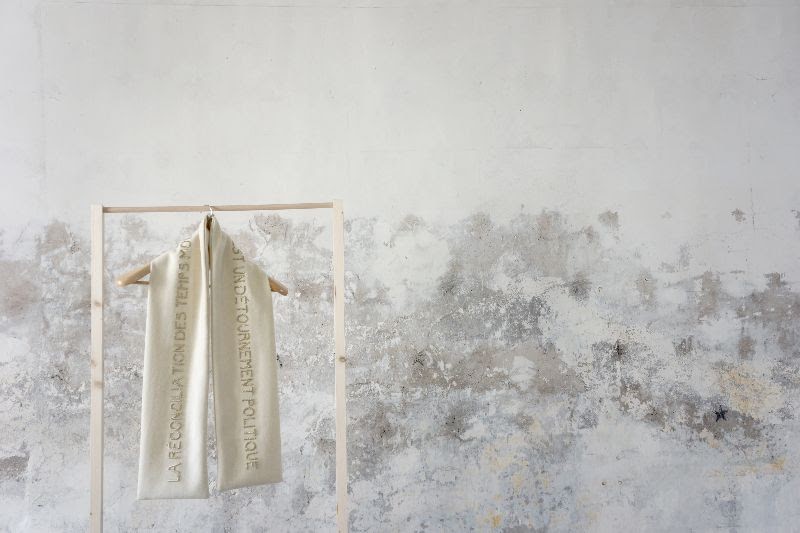Silence is Information
- Clémence de Montgolfier
Los Angeles Contemporary Archive is pleased to present Silence is Information, an onsite research project by Clémence de Montgolfier. De Montgolfier (b.1987, lives and works in Paris) is a visual artist whose works investigates the politics of public speaking, representation, and the mediation of speech.
As a case study, de Montgolfier has chosen to investigate "Truth and Reconciliation Commissions" (TRCs), a model of transitional justice commissions that have been organized in countries in democratic transition since the 1980s and other truth-seeking commissions modeled after them. TRCs publicly issue recommendations in an attempt to shed light on collective history and living together, with the goal of achieving relative social peace and repairing what can be. If the notion of restorative justice is paramount in the establishment of these commissions, the notion of "truth" as well as "reconciliation" are questioned, and their limits are tested. Indeed, the sincerity of each of the parties and the sometimes political interests that reside in the public and mediatized approach of "looking towards a pacified future" are regularly questioned and often criticized; furthermore, the recommendations published by the commissions are rarely followed by immediate political action. Criticism of TRCs include that these commissions have become performative acts of truth-telling that are still beneficial to society as a whole.
At LACA, as a two part project titled Impossible Mediations, de Montgolfier will be sharing Silence is Information, an exhibition and onsite research. The project presents a series of four filmed interviews with participants who have testified in Truth and Reconciliation Commissions. Textile stoles embroidered with quotes from commissioners will also be viewable at LACA with the aim to counter feelings of illegitimacy from speaking publicly and propose that wearable objects can encourage questions around the authority of “truth.” By investigating moments of silence in relationship to oral history, the role of archives, and the field of restorative justice, what is the importance of testimonies and their recordings in truth-seeking? How is the process of recording a testimony for oral history a negotiation or co-creation between the point of view of the interviewee and the historian recording them? What kinds of truths can emerge? What do these experiences of truth seeking produce, and why should they be archived? What is the relationship between history and personal and collective memories? How can we document and record some things that are made to be forgotten? Why are the most significant events sometimes the ones that we forget? What is the relationship between the personal, the intimate, and what is public? What is the role of archives in this? What are some strategies to ask for recognition and compensation for things that cannot be repaired or that remain most of the time invisible to the status quo?
Gallery Weekend Events
805 479 2939
info.lacarchive@gmail.com
Make an appointment to visit the archive
by reserving HERE
